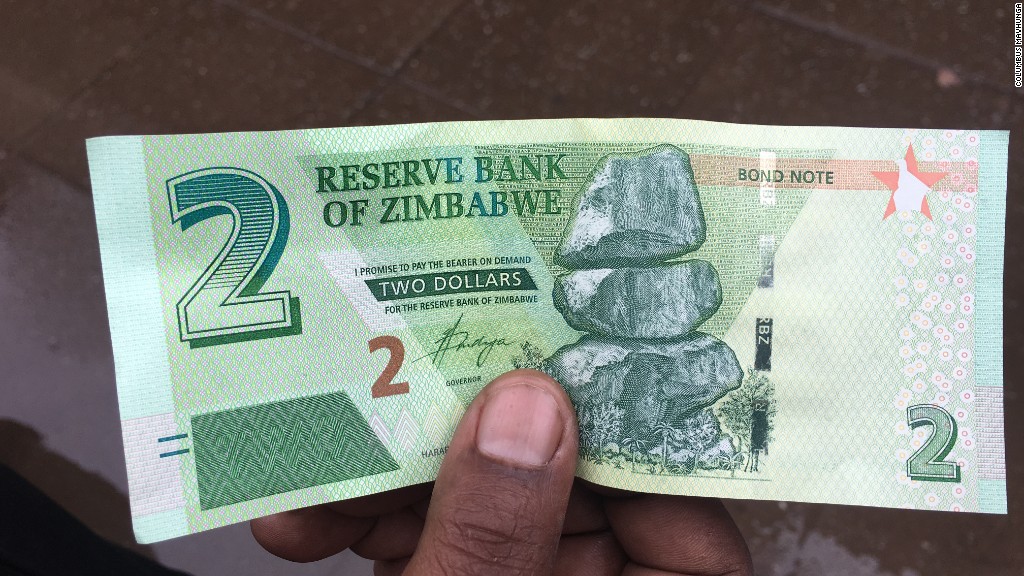
Political turmoil and an apparent coup have pushed the price of Bitcoin as high as $13,000 on a digital currency exchange in Zimbabwe -- nearly twice the going rate in global markets.
Demand surged on Golix, which appears to be the only local Bitcoin exchange, after military leaders put 93-year-old leader Robert Mugabe under house arrest.
Bitcoin has long commanded higher prices in Zimbabwe, which scrapped its own currency in 2009 after years of hyperinflation made it worthless.
But the appearance of tanks on the streets of the capital Harare have pushed the price gap even wider. Bitcoin was trading on international exchanges for roughly $7,500 on Thursday.
The digital currency was quoted more broadly in line with world prices in online market places that allow buyers and sellers in Zimbabwe to deal directly with each other.
Related: Mugabe's exit is 'a done deal' but Zimbabwe is still in limbo
Elevated Bitcoin prices in Zimbabwe appear to be the result of the country's dysfunctional economy and mismatched supply and demand.
Since 2009, business in the country has been conducted in a number of foreign currencies, but exchange rates on the thriving black market are highly distorted. Dollars are in short supply, and strict capital controls are in place.
Last year, the country started printing bond notes -- backed by U.S dollars -- in a bid to ease a chronic shortage of cash. But many Zimbabweans worry they are a backdoor to the reintroduction of a local currency that would be doomed to massive devaluation.
"In Zimbabwe, you are very limited with what you can do with the money in your bank account," Golix says on its website. "Bitcoin is better than the money we're using now."
Related: How Robert Mugabe killed one of Africa's richest economies
There is also the problem that local demand for Bitcoin far outstrips supply.
Only 16 Bitcoin have been traded on Golix over the past 24 hours, and 160 over the previous month.
Bitcoins are created through "mining" -- a process in which computers race to solve complex math problem, and winners are rewarded with chunks of the digital currency.
Mining requires huge amounts of electricity, and Golix says that energy prices in the region are simply too high to make the process cost effective.
"Bitcoin in circulation in Africa comes from people who bought it at an exchange elsewhere," the exchange says on its website.
Supply is likely remain low, however. Golix doesn't allow Bitcoin sellers to take their money away in cash.


